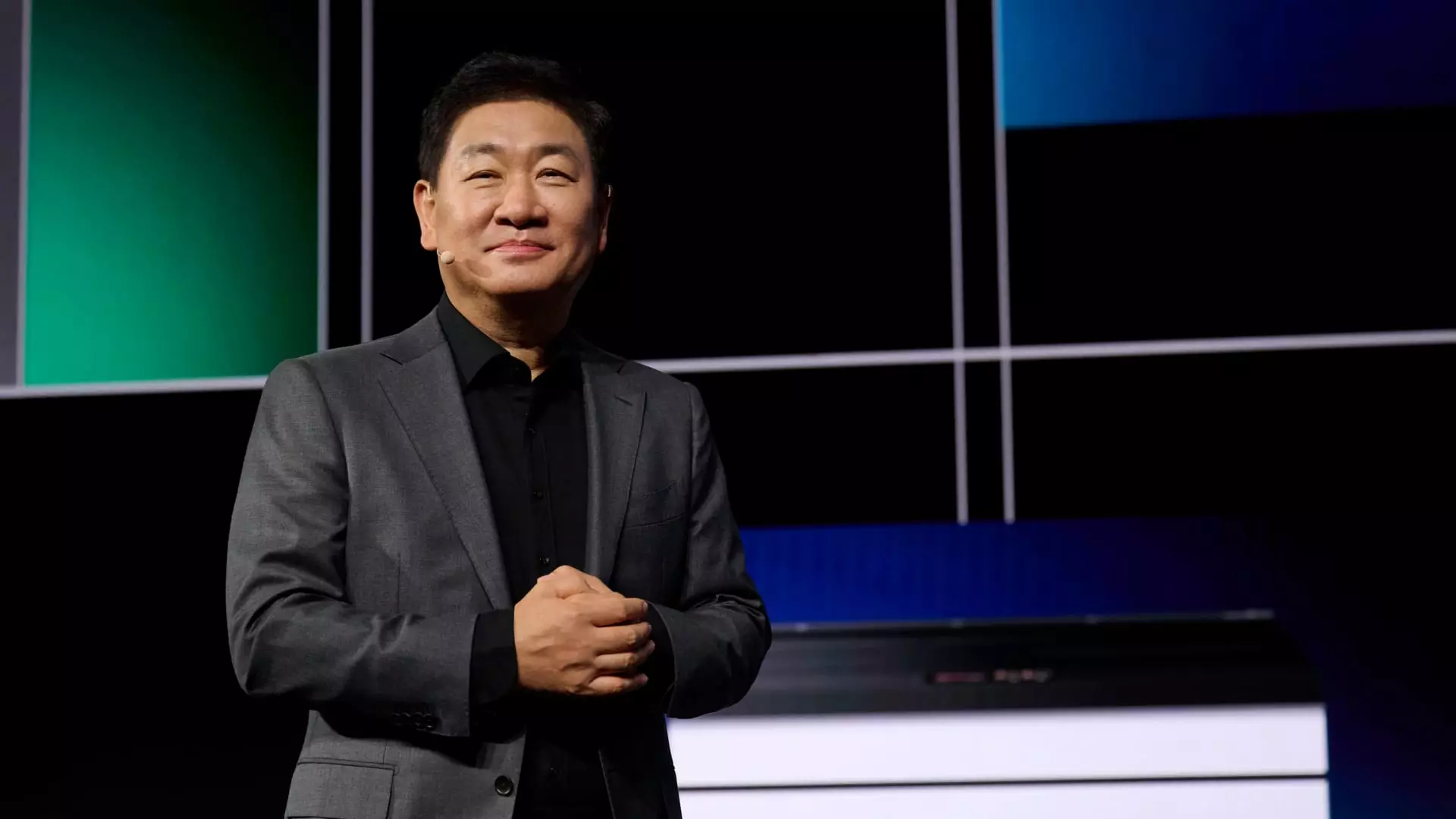In the ever-evolving landscape of consumer electronics, Samsung Electronics is stepping up its game by prioritizing on-device artificial intelligence (AI). As the global market for consumer electronics—specifically smartphones, televisions, and home appliances—projects a modest growth of around 3% by 2025, Samsung aims to outpace this trajectory. CEO Jong-Hee Han expressed confidence during an interview with CNBC that the company’s mobile devices segment will achieve a growth rate of 4% to 5% in the coming year. This ambition is supported by the expectation of rapid advancements in their television and home appliances divisions as well.
Samsung’s strategy involves integrating AI capabilities into various devices, from refrigerators to washing machines and robotic vacuum cleaners, thus enhancing user experiences. The flagship Galaxy S24 series smartphones, for example, have adopted AI features like real-time translation during phone calls. This focus on on-device AI not only augments the product functionality but positions Samsung as a forward-thinking technology leader amid intensifying competition.
As Samsung pursues this growth-oriented path, it faces significant competition from Chinese brands such as Huawei and Xiaomi, who offer high-end smartphones at competitive prices. Han described the rivalry as “helpful” to both Samsung and consumers, emphasizing that the company’s focus will lie in differentiating its offerings through superior security and convenience rather than engaging in price wars. This strategic stance reflects an understanding that sustaining brand value is crucial in an environment oversaturated with budget-friendly alternatives.
Furthermore, Samsung’s commitment to innovation is critical as it aims to counterbalance the pressure from its competitors. With Chinese brands continually launching devices that match or exceed Samsung’s quality, it is paramount for the South Korean giant to leverage its technological prowess to maintain its competitive edge.
In response to various challenges, including stiff competition and lagging performance in the memory chip sector, Samsung announced a significant leadership restructuring, positioning Jun Young-hyun as co-CEO. This strategic move aims to bolster leadership efficacy amid fluctuating chip market dynamics, especially as Samsung finds itself behind competitors like SK Hynix in high-bandwidth memory (HBM) chips, which are integral to AI development. The market dynamics are pressing, and the collaboration between Han and Jun may provide a more cohesive strategy to reclaim previous dominance in this high-value sector.
Amidst this leadership transition, Samsung’s financial forecast paints a mixed picture. With an operating profit projection of approximately 8.2 trillion won for the December quarter—significantly improving from the previous year but slightly declining from the preceding quarter—investor sentiment remains cautious. The significant drop in Samsung’s stock value over the past year, which plummeted by 32%, highlights the urgent need for effective management strategies and investor reassurance.
In addressing shareholders’ concerns, Samsung has initiated a “value-up” plan aimed at enhancing returns. Emphasizing a systematic rollout of this plan, Han indicated that the company is committed to turning around its performance metrics. Additionally, the announcement of a monumental share buyback plan totaling 10 trillion won signals a proactive approach to stabilize the stock price while reassuring investors of the company’s long-term viability.
Experts are optimistic yet cautious, with analysts like Phillip Wool highlighting the importance of closing the gap in HBM capabilities to solidify Samsung’s position in the semiconductor market. However, there are acknowledged risks, as pointed out by Peter Lee of Citi, who cautioned that delays in securing Nvidia’s approval for HBM chips may pose further challenges for the company.
As Samsung Electronics endeavors to navigate the complex landscape of consumer electronics and AI innovation, it presents a mixed but hopeful outlook. The company’s emphasis on integrating sophisticated AI into its product lineup aims to elevate user engagement while combating competitive pressures from emerging players. With strategic leadership shifts and proactive financial maneuvers, Samsung is poised to reclaim its standing in the market. However, the journey ahead demands resilient strategies and innovative spirit to turn aspirations into tangible results. The key will be whether Samsung can harmonize its ambitious growth plans with the realities of an increasingly competitive and price-sensitive market.

